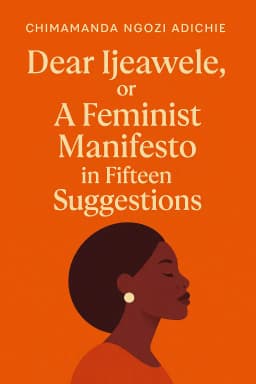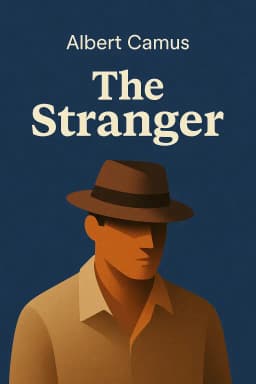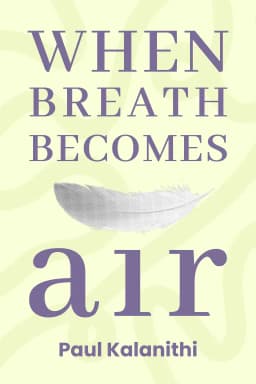
The Stoic Operating System
366 Meditations on Wisdom, Perseverance, and the Art of Living
Golden Hook & Introduction
SECTION
Michael: Most people think Stoicism is about gritting your teeth and suppressing all emotion. A stone-faced statue. But what if the original Stoics were actually masters of finding joy, and their secret weapon was a simple mental switch that has nothing to do with being emotionless? Kevin: Yeah, I always pictured a Roman emperor in a toga, looking miserable and pondering the futility of it all. You're saying that's wrong? That the whole "stiff upper lip" thing is a complete misreading of the philosophy? Michael: It's one of the biggest philosophical misunderstandings out there. And the book we're diving into today really cracks that myth wide open. It’s The Daily Stoic: 366 Meditations on Wisdom, Perseverance, and the Art of Living by Ryan Holiday and Stephen Hanselman. Kevin: Ah, I've seen that one everywhere. It feels like it single-handedly brought Stoicism back into the mainstream. Michael: It absolutely did. And it's a fascinating collaboration. You have Stephen Hanselman, a Harvard Divinity School-trained scholar who did the deep-dive translations of these ancient texts, paired with Ryan Holiday, the marketing genius who knows how to make ancient ideas feel urgent and modern. That partnership is really what made this book a massive bestseller and ignited this modern Stoicism movement. Kevin: Okay, so you have the academic rigor and the modern-day storyteller. I get that. But where do you even start with a philosophy that’s thousands of years old? Michael: It all starts with one foundational idea, an operating system for the human mind that is shockingly simple and incredibly powerful.
The Dichotomy of Control: The Stoic Operating System
SECTION
Michael: The Stoics, particularly a former slave named Epictetus, built their entire philosophy on what’s called the "Dichotomy of Control." Kevin: Hold on, 'Dichotomy of Control' is a mouthful. In simple terms, what does that look like when you're, say, stuck in traffic and late for an important meeting? Michael: It means recognizing there are two buckets of things in that situation. In the first bucket are the things you can't control: the traffic itself, the time on the clock, what your boss will think when you arrive late. Worrying about those is like trying to push a river upstream—it's pointless and exhausting. Kevin: Right, we've all been there, white-knuckling the steering wheel. So what's in the second bucket? Michael: The only things you can control: your perception of the situation—is it a catastrophe or just an inconvenience? The actions you take—can you call ahead? Can you use the time to listen to a podcast? And your will—your choice to remain calm instead of spiraling into rage. That’s it. That’s the entire game. Kevin: That sounds simple, but I imagine it's incredibly hard to do in practice, especially when the stakes are high. Michael: Exactly. And to see its true power, you have to look at it under the most extreme pressure imaginable. The story of Captain James Stockdale is one of the most powerful examples of this in history. Kevin: I've heard the name. Can you walk us through that story? I want to understand how this works when everything is on the line. Michael: Absolutely. James Stockdale was a U.S. Navy pilot during the Vietnam War. In 1965, his plane was shot down. As he was parachuting down, knowing he was about to be captured, he told himself, "I am leaving the world of technology and entering the world of Epictetus." Kevin: Wow. He's thinking about an ancient Greek philosopher while falling out of the sky into a war zone? Michael: He was. Stockdale had studied philosophy, and he knew what was coming. He was captured and spent the next seven and a half years in the infamous "Hanoi Hilton" prisoner-of-war camp. He was repeatedly tortured, kept in solitary confinement, and lived under the constant threat of death. Kevin: That's horrifying. How does any philosophy help you there? Michael: This is where the Dichotomy of Control becomes a lifeline. Stockdale realized his captors could control his body, his food, his environment, whether he lived or died. They could break his bones, but they could not control his mind. He focused only on what was in his power: his character, his integrity, his choice not to betray his country or his fellow prisoners. He organized a resistance among the prisoners, created a secret communication system, and maintained his own inner freedom even while physically in chains. Kevin: So they could control the 'externals,' but the 'internals'—his choices, his will—were his alone. Michael: Precisely. He said later that the ones who didn't make it out were often the optimists—the ones who kept telling themselves, "We'll be out by Christmas." When Christmas came and went, they were crushed. Stockdale, using Stoic principles, confronted the brutal reality of his situation without giving up faith that he would prevail in the end. He controlled his perceptions and his will. He survived and was awarded the Medal of Honor. Kevin: Wow. That's incredible. To be in that situation and have the mental clarity to think, 'They can break my body, but not my will'... that's a whole other level of mental strength. It makes my frustration about being stuck in traffic seem pretty trivial. Michael: But the principle is the same. The Stoics would say life is constantly testing us with things outside our control—a bad diagnosis, a market downturn, a relationship ending. The question is always: where are you going to focus your energy? On the things you can't change, or the one thing you can—your own response? Kevin: So how do we, without being in a POW camp, apply that same principle to our much smaller, everyday 'prisons'—like a toxic job or a difficult family situation? Michael: That's the perfect question, because it leads right to the second pillar of Stoicism. Once you know what to focus on, the next step is how you focus. The Stoics argued it's not events that upset us, but our judgments about them.
Perception as the Architect of Reality
SECTION
Kevin: It’s like our brain adds a story to everything, right? The event itself is neutral, but we're the ones who write the headline: 'This is a disaster!' or 'This is an opportunity!' Michael: Exactly. And some of the stories we tell ourselves are incredibly destructive. Take the writer F. Scott Fitzgerald. He was obsessed with the ultra-wealthy. He famously wrote in a story, "Let me tell you about the very rich. They are different from you and me." He built them up in his mind as this mythical, almost divine class of people. Kevin: I think a lot of people still do that today, especially with social media. We see these curated lives and build a whole fantasy around them. Michael: We do. And for Fitzgerald, this perception became toxic. He spent his life chasing that glamour, and when he got close to it, he found it hollow and corrupt. It contributed to his deep disillusionment and personal struggles. His friend, Ernest Hemingway, had a much more Stoic-like response to that famous line. He supposedly shot back, "Yes, they have more money." Kevin: That's such a great comeback. Just stripping the story away and stating the plain fact. Michael: It's pure Stoicism. And the book gives these fantastic modern counter-examples. You have Warren Buffett, one of the richest men in the world, who still lives in the same modest house he bought in Omaha in 1958. Or Kawhi Leonard, the NBA superstar, who for years drove his old 1997 Chevy Tahoe even after signing a contract worth nearly $100 million. Kevin: Why, though? Is it just being frugal? Michael: It's about perception. For them, money is a tool, not an identity. Their perception of wealth is that it's an external thing, useful for some purposes, but it doesn't define their character or their happiness. They stripped away the story that says 'rich people must live in mansions and drive fancy cars.' They just see the facts, and the fact is, the old car still works. Kevin: This is where I've heard some pushback, though. Critics sometimes say this modern version of Stoicism, especially the way Ryan Holiday presents it, turns it into a 'life hack' for success. They argue it's less about ancient virtue and more about becoming an unflappable CEO or a clutch athlete. Is that a fair critique? Michael: It's a very fair and important point to raise. There's a real debate about whether this "pop-Stoicism" dilutes the original philosophy. The ancient Stoics, like Seneca or Marcus Aurelius, were clear: virtue is the sole good. Wealth, health, reputation—those are all "indifferents." They're nice to have, but they have no bearing on your moral worth. Kevin: So getting a promotion or winning a championship isn't the point. Michael: Not the ultimate point. I think Holiday and Hanselman's approach is to use these modern examples of success as a gateway. They're showing the power of the principles in a language our culture understands, which is often the language of achievement. They're demonstrating that controlling your perceptions and focusing on your actions works. It produces results. Kevin: So it’s like using a hook to get people in the door, and then hoping they stay for the deeper lesson? Michael: I think so. The real work, as the book suggests through its 366 daily meditations, is to turn that power inward. You use the clarity you gain not just to win at your job, but to be a better father, a more just person, a more resilient human being. The book is a daily practice, a starting point for that deeper journey.
Synthesis & Takeaways
SECTION
Kevin: Okay, so if I'm piecing this all together, it's not about becoming an emotionless robot or just getting rich. It's about clearing out the mental junk—the worries about things we can't control and the dramatic, unhelpful stories we tell ourselves—so we have the freedom and energy to focus on what actually matters. Michael: Precisely. It's about reclaiming your mind. The Stoics saw the mind as a citadel, an inner fortress. The world can throw whatever it wants at the walls—plague, war, betrayal, loss. Those things can be painful, absolutely. The Stoics weren't denying pain. But they can't breach the walls of the citadel unless you let them. Kevin: And you "let them" by judging them as unbearable or by trying to fight battles you can't win. Michael: Exactly. The ultimate freedom the Stoics talked about isn't freedom from hardship. It's freedom within hardship. It's the profound knowledge that no matter what happens externally—a market crash, a political firestorm, a personal tragedy—your inner citadel, your power to choose how you respond, remains untouched and unconquerable. That's the real prize. Kevin: That’s a powerful idea. It makes you wonder, what's one thing I'm wasting energy on right now that's completely outside my control? Michael: That's the question for all of us, every single day. And it's a great exercise. We'd love to hear what our listeners think. Drop a comment on our platforms and share one thing you're choosing to let go of after hearing this. It's a powerful first step. Michael: This is Aibrary, signing off.









